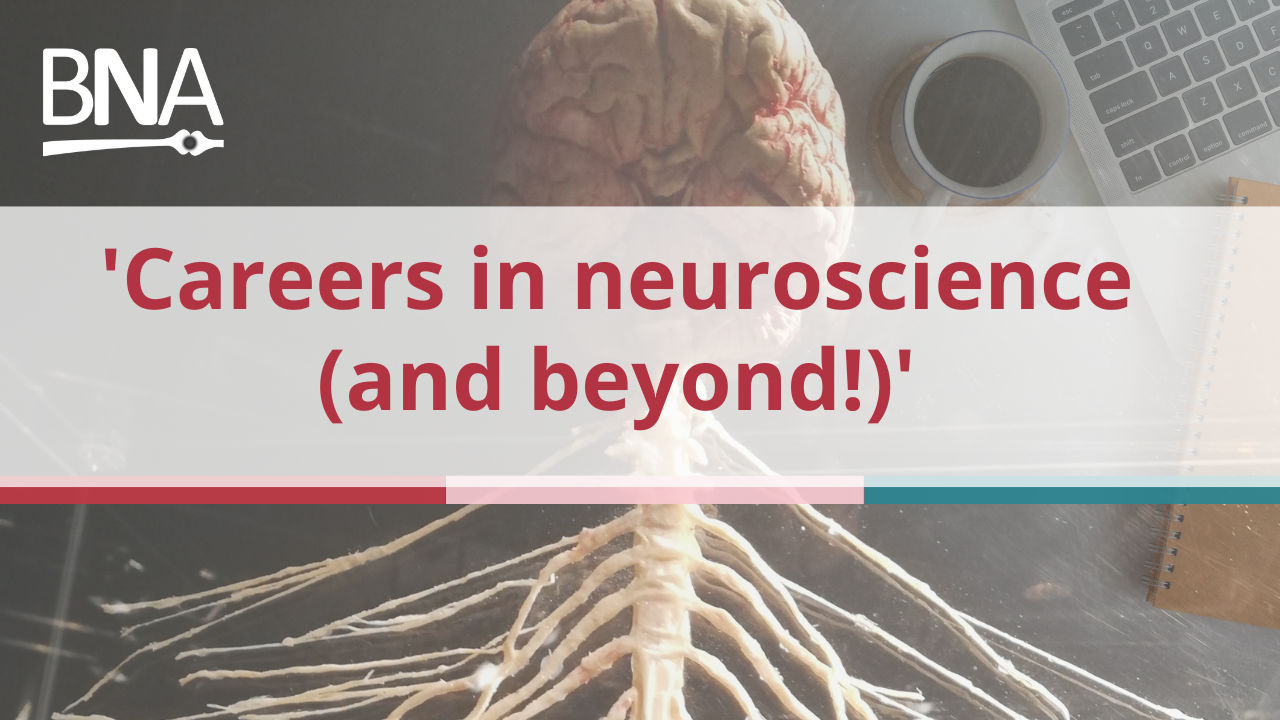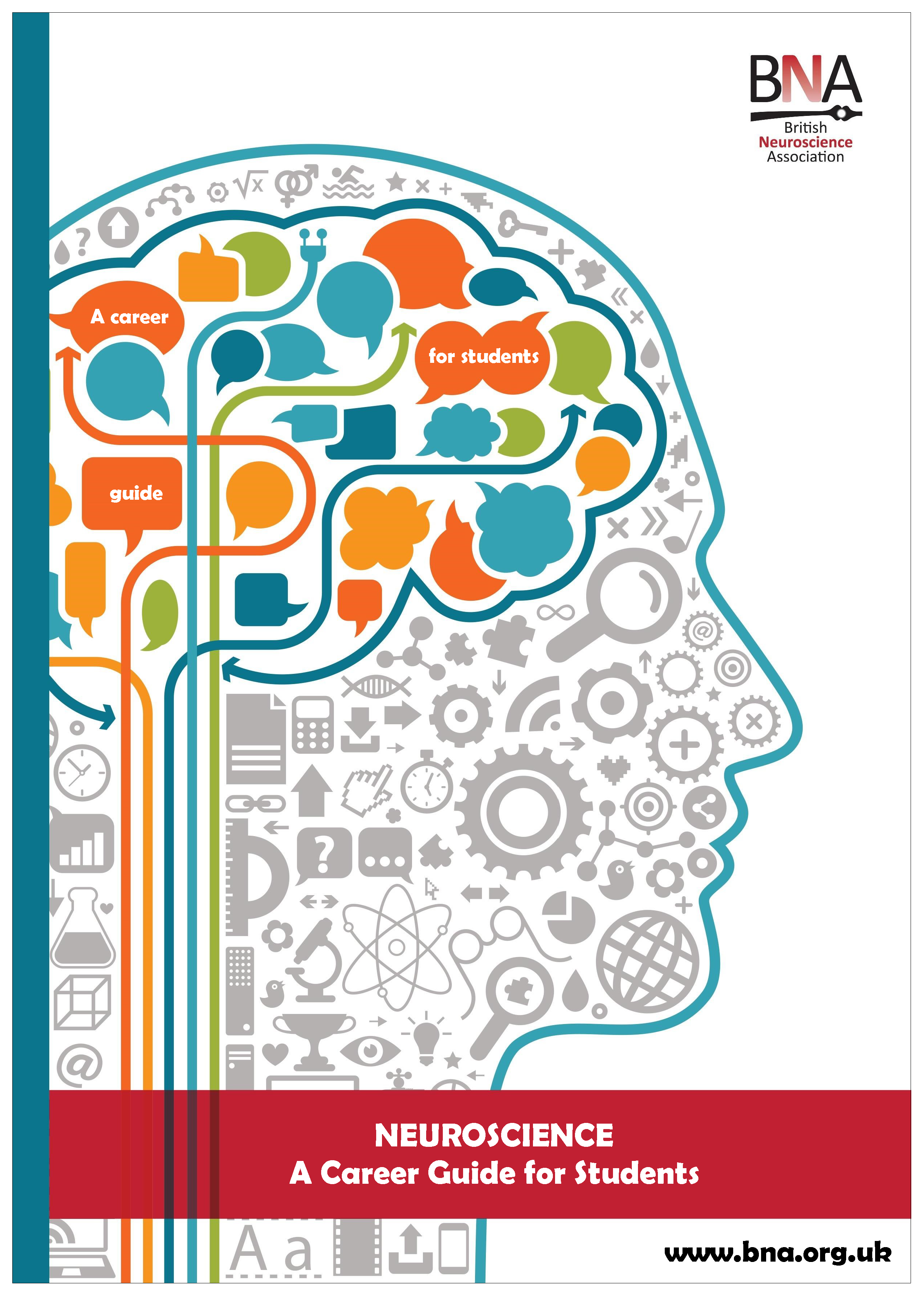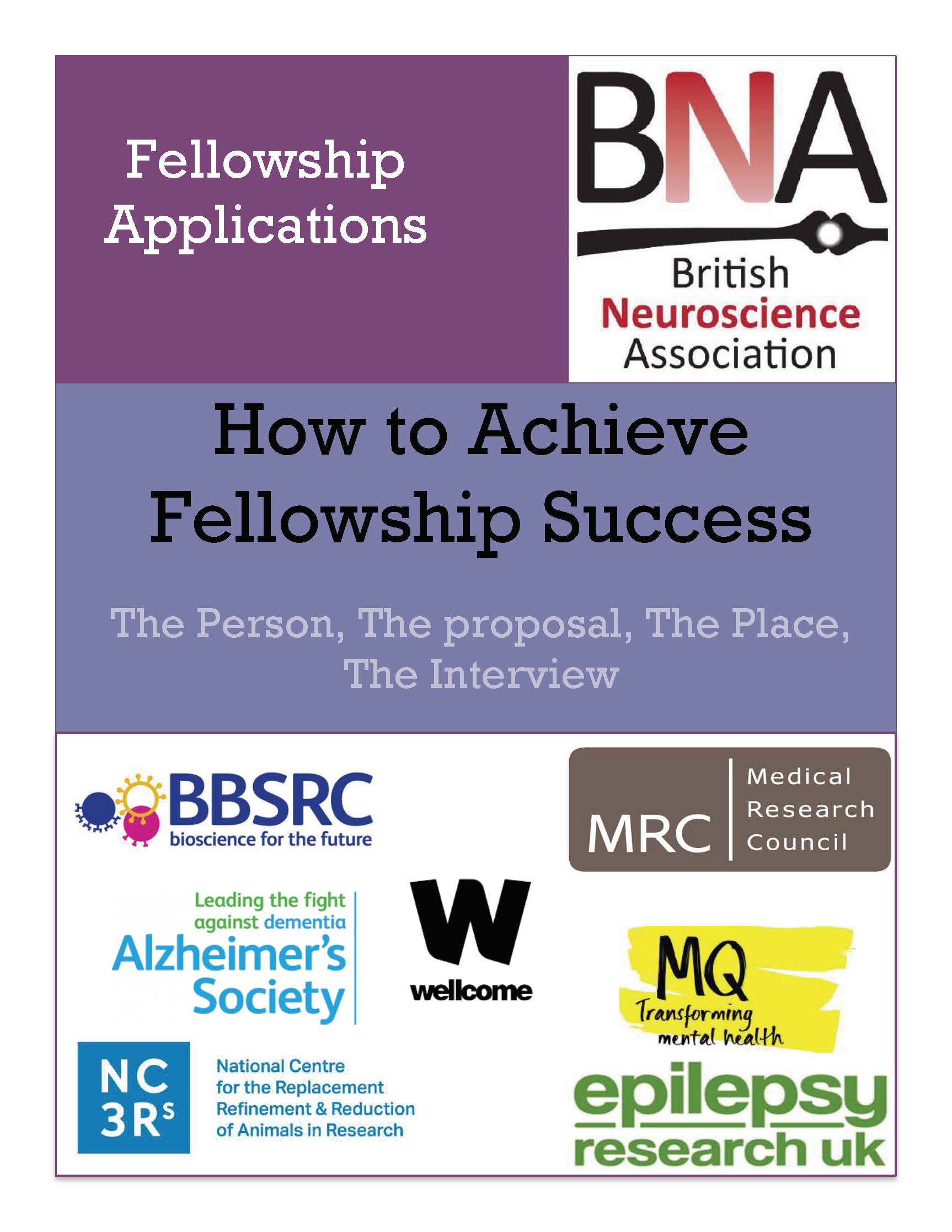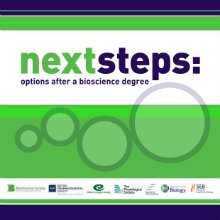Place your votes: BNA Council & Committee elections
22nd July 2024
You can find further information about a career in neuroscience via the links below.
Are you a student or early-career scientist or clinician thinking about a career in neuroscience? You can access more information and advice, prizes and bursaries by becoming a member of the BNA. Join from just £12 per year.
Careers in neuroscience (and beyond!): Webinar
Watch this video to hear about degrees and careers in neuroscience, what it’s like to be a neuroscientist, the wide range of career options open to you after a neuroscience degree, first-hand examples of career paths in neuroscience, and some tips and thoughts to help you in your own careers from people with different experiences in neuroscience.
range of career options open to you after a neuroscience degree, first-hand examples of career paths in neuroscience, and some tips and thoughts to help you in your own careers from people with different experiences in neuroscience.
You can watch the webinar on our YouTube channel here.
Making it Brain: A Neuroscience Research and Career Mini-Conference for Students
The UK Dementia Research Institute (UK DRI) hosted a research and careers mini-conference for late-stage (16+) secondary school students on 15th and 16th September virtually.
Learn about the career of an academic scientist or clinician and their fascinating research into the workings of the brain. This event showcased diverse topics from across the Institute - from cells to circuits, systems to patients!
Plus, go behind the scenes of a working laboratory in a series of videos to experience the range of techniques used to investigate the brain and its unique characteristics.
Catch up with all the action from day 1 and day 2 of the conference.
s1jobs: A university graduate's guide to boosting career prospects
As a university student, ultimately your aim is to finish your course with a degree which sets you up for the career of your dreams. But what can you do in the meantime to ensure your chances of landing that job are heightened?
In this comprehensive guide, check out 20 of the best ways to put yourself in a position which stands out to employers. You can never guarantee you’re going to be the optimum candidate for a job – but by following the advice laid out here, you’re placing yourself in a position to get a one-up on the competition.
NEUROSCIENCE - UNRAVELLING THE MYSTERIES OF THE BRAIN: A Career Guide for Students
 The BNA has written this highly informative leaflet for A-Level / Scottish Advanced Highers / IB students upwards. It covers basic neuroanatomy, undergraduate and postgraduate entry into neuroscience, and possible career paths involving neuroscience, as well as a selection of recent case studies from a range of neuroscientists.
The BNA has written this highly informative leaflet for A-Level / Scottish Advanced Highers / IB students upwards. It covers basic neuroanatomy, undergraduate and postgraduate entry into neuroscience, and possible career paths involving neuroscience, as well as a selection of recent case studies from a range of neuroscientists.
You are welcome to download your free copy here.

 How to achieve Fellowship success: The Person, The proposal, The Place, The Interview
How to achieve Fellowship success: The Person, The proposal, The Place, The Interview
This booklet has been put together by the British Neuroscience Association (BNA) to support early career researchers and to aid fellowship application success.The BNA have asked fellowship funders how they select their fellows and this guide takes you through what each is looking for, summarising the most important points first at the beginning and again at the end as a personal tick list for fellowship success
BNA members can access the guide here.

Careers from Science is an initiative that helps young people, their parents and teachers understand what options are available for anyone interested in pursuing a science career

Science, Technology, Engineering and Mathematics (STEM) are hugely important areas of study which lead to a huge variety of exciting careers. If you are unsure about which path you should take to your ideal career try out Cogent's Career Navigator tool. 
 Flexible Interchange Programme (FLIP)
Flexible Interchange Programme (FLIP)
BBSRC's FLexible Interchange Programme (FLIP) supports the movement of people from one environment to a different one to exchange knowledge, technology and skills, developing bioscience research/researchers and addressing BBSRC's strategic priorities.
 Next Steps: Options after a bioscience degree
Next Steps: Options after a bioscience degree
This 'Ultimate Careers Guide for Bioscience Graduates' is developed and produced by the Royal Society of Biology in collaboration with other organisations with expertise in natural sciences.